The genotype-phenotype landscape of an allosteric protein
Drew S. Tack, Peter D. Tonner, Abe Pressman, Nathanael D. Olson, Sasha F. Levy, Eugenia F. Romantseva, Nina Alperovich, Olga Vasilyeva, and David Ross. Molecular Systems Biology
Drew S. Tack, Peter D. Tonner, Abe Pressman, Nathanael D. Olson, Sasha F. Levy, Eugenia F. Romantseva, Nina Alperovich, Olga Vasilyeva, and David Ross. Molecular Systems Biology
James F. Pelletier, Lijie Sun, Kim S. Wise, Nacyra Assad-Garcia, Bogumil J.Karas, Thomas J.Deerinck, Mark H.Ellisman, Andreas Mershin, Neil Gershenfeld, Ray-Yuan Chuang, John I.Glass, Elizabeth A. Strychalski. Cell
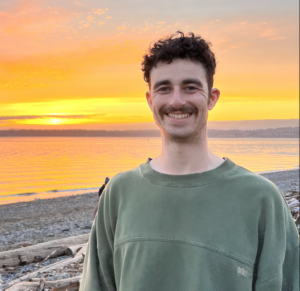
Ryan is a Molecular Engineering PhD student at the University of Washington in the Carothers and Zalatan labs. His research focuses on developing improved tools to precisely regulate gene expression in microbial and cell-free systems. Ryan fills his time outside of the lab on long runs, concerts, board games, or cooking.
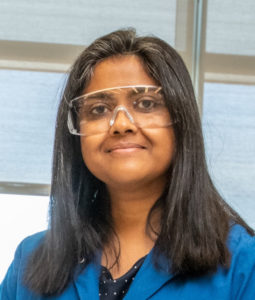
Dr. Mukhopadhyay is a Senior Scientist in the Biological Systems and Engineering Division at the Lawrence Berkeley National Laboratory (LBNL) in Berkeley, CA. She received a master’s in chemistry from the Indian Institute of Technology in, Mumbai, India in 1996 and a PhD in Organic Chemistry from the University of Chicago, Chicago, IL in 2002. She did her postdoctoral research at UC Berkeley and LBNL. Currently, she is the principal investigator of her team that is part of several large interdisciplinary projects, mainly focused on engineered and environmental microbial systems. She is the Vice President of the Biofuels and Bioproducts Division at the Department of Energy funded, Joint BioEnergy Institute (JBEI) and is also the Director of its Host Engineering group. As part of JBEI her group develops tools to examine and engineer a variety of microbial platforms including Pseudomonas putida, Corynebacterium glutamicum, Escherichia coli, Rhodosporidium toruloides, Saccharomyces cerevisiae, and other microbial strains. She uses a range of functional genomics, metabolic modeling, and systems biology approaches. Her group specifically focuses on developing robust strains that show high tolerance and productivity during biofuel and chemical production, and the optimization required to achieve scalability.
The EBRC Annual Meeting is an opportunity for the EBRC community to come together to engage on matters important to advancing our field, present and discuss your latest research, and continue to build relationships with your colleagues throughout academia, industry, and government. This virtual meeting will feature sessions on research, EBRC’s work in our focus areas, and a panel discussion on diversity, equity, and inclusion.
The meeting will be held virtually over three days: April 23 and 26-27, 2021. VIEW THE FULL AGENDA HERE.
Registration is now open to all EBRC members and affiliates (including EBRC Student & Postdoc Association members). The deadline to register is April 21.
Zoom and Gather Town will be used to hold this virtual event.
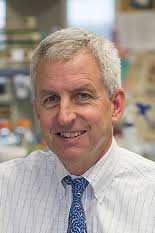
WILLIAM E. BENTLEY is the Robert E. Fischell Distinguished Chair in Engineering and was the founding Chair of the Fischell Department of Bioengineering. At Maryland since 1989, Dr. Bentley has focused his research on the development of molecular tools that facilitate the expression of biologically active proteins, having authored over 300 related archival publications. Recent interests in synthetic biology and biofabrication exploit the components of bacterial quorum sensing and redox for opening ‘communication’ between electronic devices and biological systems. He has mentored over 40 PhDs and 21 postdocs. He is co-PI of Maryland’s Center of Excellence in Regulatory Science and Innovation (CERSI), a comprehensive joint initiative with the FDA and Maryland’s Baltimore campus. He is also co-PI of the National Capital Consortium for Pediatric Device Innovation, joint with Children’s National Medical Center. Dr. Bentley is a Fellow of the ACS, AAAS, and AIMBE and is an elected member of the American Academy of Microbiology.
Over the past year, we have seen an alarming surge of racism and violence against Asians and Asian Americans. EBRC joins the voices across the United States condemning the vile, racist acts in Georgia that took the lives of Soon Chung Park, Hyun Jung Grant, Suncha Kim, Yong Ae Yue, Delaina Ashley Yaun, Paul Andre Michels, Xiaojie Tan, and Daoyou Feng. These individuals, six of whom were women, were the targets of the misogyny and racial hatred that we must confront head-on.
The escalation of acts against Asians, Asian Americans, and Pacific Islanders is the latest in a disturbing series of events we’ve seen over the past months. As we all have fewer personal interactions than we did a year ago, it is evermore important to commit to intervene in the face of bigotry and xenophobia. We stand with our Asian and Asian American family members, friends, and colleagues. Acts of violence targeted against any group weaken us as a community, weaken us as a nation, and weaken the world as a whole.
As EBRC speaks out to condemn these acts, we restate that diversity, inclusion, equality, and justice are among our core values. We seek to solve national and global challenges through engineering biology; that will only be possible by celebrating and protecting the diversity of our community that enables globally engaged research. Last summer, in the wake of George Floyd’s murder, EBRC launched an effort to take action to improve diversity, equity, and inclusion in our field. Today, we commit to redouble our efforts and bring necessary anti-racism and anti-discrimination tools to our community to combat these injustices directly.
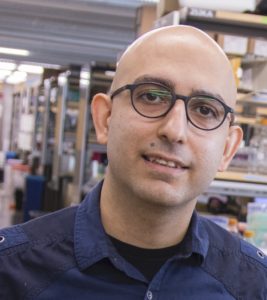
Dr. Mo Ebrahimkhani is an Associate Professor in the Department of Pathology, School of Medicine, University of Pittsburgh. He is also a member of the Division of Experimental Pathology and the Pittsburgh Liver Research Center. Prior to his current position he was an assistant professor in the School of Biological and Health Systems Engineering at Arizona State University and adjunct faculty of medicine at Mayo Clinic. He performed his Postdoctoral training at the Department of Biological Engineering in Massachusetts Institute of Technology (MIT).
Dr. Ebrahimkhani has an MD degree from Tehran University of Medical Sciences and was awarded a European Association for Study of Liver Sheila Sherlock Fellowship to investigate regenerative processes at University College London. His lab combines human stem cells, synthetic biology and in vivo mouse models to understand tissue development and regeneration and develop technologies to modulate these processes in a personalized fashion. Dr. Ebrahimkhani is the recipient of several research awards including RO1s from NIH, Mayo Clinic accelerated regenerative medicine award and New Investigator Award from Arizona Biomedical Research Council. He is also a member of PLOS ONE Editorial Board (2018- present).
He directs THE LABORATORY FOR SYNTHETIC BIOLOGY AND REGENERATIVE MEDICINE. His lab research combines systems and synthetic biology-based approaches to program development of induced pluripotent stem cells across the developmental trajectories and towards human designer liver organoids and hematopoietic niches. This approach will open novel opportunities for next generation genomically engineered human tissues, personalized disease modeling and more effective regenerative therapies. His vision is to advance regenerative medicine through integrating systems and synthetic biology.
Biology is easier than ever to engineer. This reality requires researchers to take proactive steps to consider the security implications of their work. The Engineering Biology Research Consortium (EBRC) is holding an interactive workshop to help you identify potentially malicious applications of your work, mitigation options, and what to do if you identify something and don’t know how to proceed. The workshop is targeted to graduate students and postdocs, but we welcome others in engineering biology to attend. This technically-focused workshop will include plenary presentations and discussion and small group analysis of participants’ research. Participants that complete all aspects of the workshop will receive a certificate of completion which can be noted on your CV.
Wednesday, April 28, 2021
10:00AM – 1:30PM Pacific Time, 1:00 – 4:30 Eastern Time
Malice Analysis: Rice University is being hosted by Rice faculty to better build and support a local security community in the Houston area. However, all are welcome to register. Contact Helix@ebrc.org, if you’re interested in hosting a virtual Malice Analysis workshop for your institution.
This workshop is supported by the U.S. Department of Homeland Security under Grant Award Number, 2017‐ST‐108‐FRG002.
Claudia is Director of CSIRO’s Synthetic Biology Future Science Platform (SynBioFSP), a highly collaborative R&D program aimed at expanding Australia’s synthetic biology capability and developing national synthetic biology-based industry. The SynBioFSP works across disciplinary boundaries, exploring both synthetic biology innovation and the social, legal, ethical and institutional issues surrounding bringing this innovation to impact. Her personal research focuses on sustainable alternatives to petrochemicals and other industrial/agricultural products using bio-based solutions. She applies synthetic biology to engineer living cells, re-programming them for production of useful biochemicals or to act as sense/response systems for environmental monitoring and remediation. Her current work is primarily in microbes, but she has a background in plant molecular biology, abiotic stress, and applied plant engineering. She played a leading role in establishing synthetic biology as a field in Australia; she was founding President of Synthetic Biology Australia and co-authored Australia’s national synthetic biology roadmap (delivered by the Australian Council of Learned Academies). She is on the Executive of the International Society for Isoprenoids (TERPNET) and serves on editorial boards for eight international journals. She represents Australia at international strategy and policy fora (US, Asia-Pacific, OECD, World Economic Forum) and sits on the Scientific Advisory Boards for several international synthetic biology institutes and for Food Standards Australia New Zealand (FSANZ). She co-chairs the World Economic Forum Synthetic Biology Future Council. She is experienced in working across disciplinary boundaries and with industry partners.
Professor Vickers holds a PhD from The University of Queensland and is an Adjunct Professor at Queensland University of Technology and Griffith University.
Biology is easier than ever to engineer. This reality requires researchers to take proactive steps to consider the security implications of their work. The Engineering Biology Research Consortium (EBRC) is holding an interactive workshop to help you identify potentially malicious applications of your work, mitigation options, and what to do if you identify something and don’t know how to proceed. The workshop is targeted to graduate students and postdocs, but we welcome others in engineering biology to attend. This technically-focused workshop will include plenary presentations and discussion and small group analysis of participants’ research. Participants that complete all aspects of the workshop will receive a certificate of completion which can be noted on your CV.
Thursday April 29, 2021
9:00AM – 12:30PM Pacific Time, 12:00 – 3:30PM Eastern Time
Malice Analysis: UC Berkeley is being hosted by UC Berkeley faculty to better build and support a local security community in the San Francisco Bay Area. However, all are welcome to register. Contact Helix@ebrc.org, if you’re interested in hosting a virtual Malice Analysis workshop for your institution.
This workshop is supported by the U.S. Department of Homeland Security under Grant Award Number, 2017‐ST‐108‐FRG002.
Biology is easier than ever to engineer. This reality requires researchers to take proactive steps to consider the security implications of their work. The Engineering Biology Research Consortium (EBRC) is holding an interactive workshop to help you identify potentially malicious applications of your work, mitigation options, and what to do if you identify something and don’t know how to proceed. The workshop is targeted to graduate students and postdocs, but we welcome others in engineering biology to attend. This technically-focused workshop will include plenary presentations and discussion and small group analysis of participants’ research. Participants that complete all aspects of the workshop will receive a certificate of completion which can be noted on your CV.
Wednesday May 5, 2021
10:00AM – 1:30PM Pacific Time, 1:00 – 4:30PM Eastern Time
Malice Analysis: MIT is being hosted by MIT faculty to better build and support a local security community in the Boston area. However, all are welcome to register. Contact Helix@ebrc.org, if you’re interested in hosting a virtual Malice Analysis workshop for your institution.
This workshop is supported by the U.S. Department of Homeland Security under Grant Award Number, 2017‐ST‐108‐FRG002.
Kate E Galloway is an assistant professor at MIT in the department of Chemical Engineering. Katie Galloway earned her BS in Chemical Engineering from UC Berkeley, PhD in Chemical Engineering at Caltech, and did her postdoc at USC Stem Cell before starting at MIT in the summer of 2019. As a chemical engineer working in molecular systems biology, her research focuses on elucidating the fundamental principles of integrating synthetic circuitry to drive cellular behaviors. Her lab focuses on developing integrated gene circuits and elucidating the systems-level principles that govern complex cellular behaviors. Her team leverages synthetic biology to transform how we understand cellular transitions and engineer cellular therapies. Her research has been featured in Science, Cell Stem Cell, Cell Systems, and Development. She has won multiple fellowships and awards including the NIH F32 and Caltech’s Everhart Award.
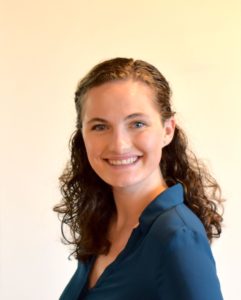
Kaitlyn Duvall is currently a Research Assistant at EBRC, providing support on a variety of projects. Prior to her position at EBRC, she held concurrent positions at the City of Reno and the University of Nevada, Reno. Kaitlyn received a B.S. in Environmental Science from the University of Nevada, Reno and a M.S. in Environmental Sciences and Policy from Johns Hopkins University.